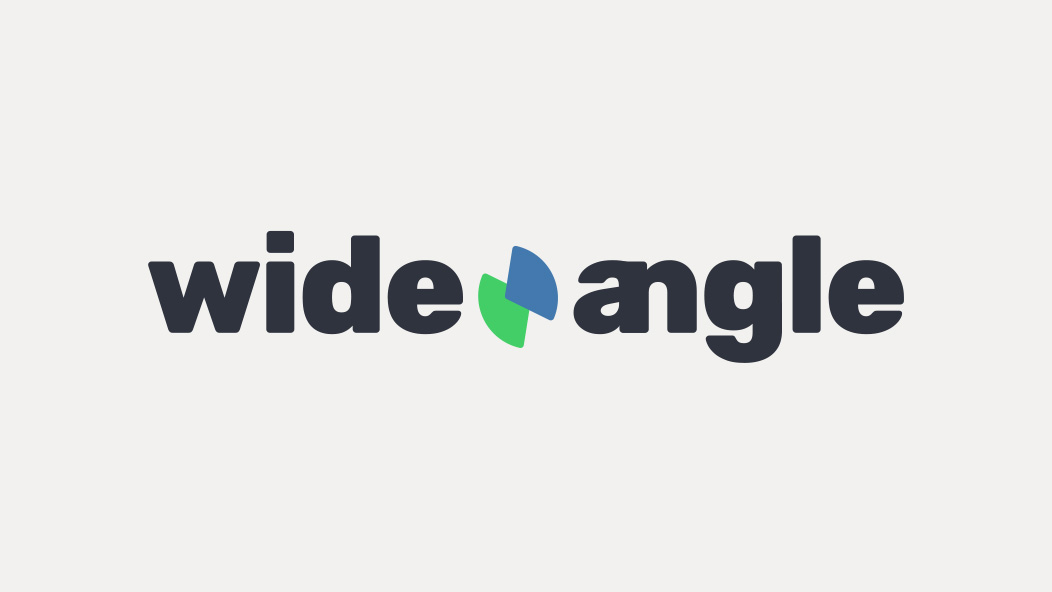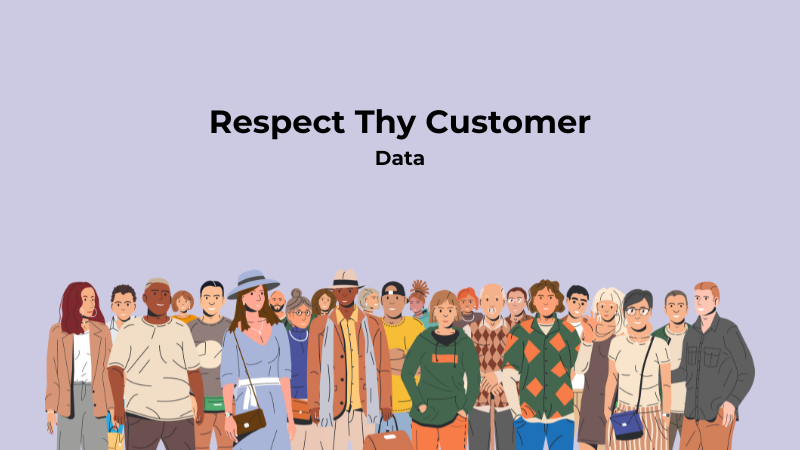Did you know that a single personal data breach can cost you a fortune? According to IBM reports, any individual data your company compromises costs you $150 loss of reputational damage and revenue. Furthermore, the Ponemon Institute and IBM research indicate that the average worldwide cost of a data breach in 2020 amounted to $3.86 Million. This figure increased to $4.24 Million in 2021, making the $0.38Million margin the largest in seventeen years. The trend in Cases of cyber insecurity and data non-compliance is on the rise – a fact that demands immediate attention and action.
All businesses collect sensitive data from customers, employees, clients, and contractors. These groups entrust you with their Personal Data- sensitive data that needs careful handling. Data compliance involves safeguarding this sensitive information and improving your company’s image. You are also talking about fostering customer loyalty and attracting the best employees. In short, you are to keep your company compliant with laid down local and international regulations.
What Is Data Compliance?
Your company’s data security is all about the way you handle your customers and employees’ sensitive information. This information ranges from your employee’s details to customers’ bank and credit card details, address, names, Telephone numbers, number plate, and health. So, building a trusting relationship means that these people need to be sure that you will protect this information to the best of your knowledge. To sum up, data compliance is organizing, managing, storing, and safeguarding data against corruption, theft, loss, or misuse.
You will also need to appreciate that data compliance differs from one country to another, one continent to the next. However, being data compliant means examining the data you collect and categorizing it accordingly. Finally, going as far as gaining the International Organization For Standardization(ISO).
Importance Of Data compliance
The main reason why companies strive to comply with data privacy regulations is to avoid the hefty fines and other penalties imposed. Nevertheless, this shouldn’t be the only reason to make you adhere to the set regulations. Others include:
Protection Of Your Customer’s Privacy
Proper data protection measures don’t just protect the business but the customer too. Any Data breach affects your customers negatively because it leads to stealing, exposing, and corrupting their sensitive data. The result is that hackers use this information to commit crimes like credit card fraud and identity theft. Complying with data privacy gives your clients peace of mind, knowing you have precautions to protect them.
A Data Breach Can Hurt Your Business
Data privacy regulations require that your business have specific legal requirements. According to the IBM and Ponemon Institute report, breaching data in 2020 meant paying an average of $3.86 Million as a fine. The worst part of it was that you had to pay more if you lost a customer’s data. Small businesses suffer more from the blow, and the only solution is to implement measures that ensure personal data protection.
It Maintains And Improves Your Brand Value
Businesses depend on their image to sell. The last thing you need is bad publicity that hurts your brand’s reputation. Data compliance signals customers that their information is safe, building brand loyalty. Varonis’ analysis reports that a data breach can lead to 80% of customers leaving your business. The other 52% will prefer to buy from your trustworthy data-compliant competitors; that’s how serious it is.
It Is A Code Of Ethics
Every organization has a code of ethics that guides its smooth operation –confidentiality being the core. Confidentiality policy dictates that all company information be handled confidentially and responsibly for the business’s sake. An ethical Corporate prioritizes data compliance as it also helps attract the best and high-calibre employees.
It Gives You An Advantage Over Your Competitors
Surveys show that 81% of people say they have almost no control over their data. Another 79% still question how companies use their personnel. 64% also said that they were concerned about the data collection by the government. In essence, people ask many questions about their sensitive data. The best way of having the edge over your competitors is to ensure that you handle data compliantly.
Some Businesses Continue to Demonstrate Negligence Towards Data Compliance Rules
- It has been more than four years since the General data protection regulation enactment. The good news is that the GDPR has made several strides towards enlightening citizens about their data protection rights. The body can proudly say that businesses are now embracing the new practices that increase data security. Data protection authorities are cooperating closely with the European Data Protection Board authorities. Besides, more countries worldwide and in the EU are emulating and using the EU data protection standards as a reference point.
- However, a lot still needs to be done. Complaints have also been filed about European companies that violate GDPR rules by transferring their user’s data to Facebook and Google. FISA laws mandate US companies like Facebook, Google, and Microsoft to provide the government with all the personal data received from the EU. They claim the Standard Contractual Clause allows them to do so despite the CJEU ruling. The sad part is when EU data exporters seem more than willing to embrace this privacy violation.
- Another case study is Amazon, determined to undermine privacy protection through its tech devices. The company finds the EU regulation on data protection restrictive and intrusive. Amazon is bent on using biometric data and artificial technologies to collect and share consumers’ collected data. It aims at collecting data for profiling and microtargeting at the expense of their customer’s privacy.
Data Compliance As A Means Of Preserving Human rights
Privacy is a fundamental human right recognized in the UN Declaration of Human Rights. Therefore, you are entitled to enjoy this right and freedom. You are right to demand that companies keep your data secure and ask for your consent before sharing. This calls for the need to have comprehensive data protection laws that are crucial in protecting the human right to privacy.
The digital era has come with its fair share of problems. Every activity you partake in online brings intruders a step closer to your private life. Your activities on Facebook, Instagram, Twitter, bank and credit details, telephone, cookies, and IP address are enough to reveal even your most intimate life. Consequently, the cyber insecurity prompted the formation of the General Data protection regulation (GDPR) enacted in 2016 and effected in 2018. The rules were developed to protect the member states from privacy violations by regulating personal data collection.
GDPR safeguards your data by allowing you to enjoy your right to privacy. It gives you back control. It stipulates that government agencies, private and public sectors, businesses, and NGOs make information on their data use, collection practices, regulation, and storage available to the public.
This regulation is not limited to EU members only. It also affects data practices of organizations outside the EU – that offer paid or any free goods or services to the EU regardless of its location. The US is among the notable companies, even though the EU lists it under “unqualified” and advertising companies. All data broker companies processing the personal data belonging to EU People are also subject to GDPR. The two countries also signed a private shield agreement. The deal sought to list participating companies with enough protection to facilitate data transfer from the EU to the US.
How GDPR Protects Individual Human Rights
Your online activities can reveal a lot about your beliefs, movements, friends and relatives, and intimate thoughts. Thus, GDPR seeks to give you enhanced protection by ensuring that no one intrudes into your private life and human rights. The organization protects you when:
- The regulation gives you the power to demand a downloaded copy of your data to be erased from a company’s site. Discontinue the use of your data and decline profiling targeted advertising. You also have the right to demand a stop to direct marketing via mail and phones.
- Individuals have the right to follow up on their data and how it was shared and used. This compels companies to ask you to opt in and out willingly.
- GDPR requires companies to practice transparency. Therefore, this helps the users understand how these companies’ Ad targets advertise and their approach to online profiling. You are guaranteed protection from profiling-made decisions.
- Finally, you are protected from unbiased Algorithmic decision-making used by the government and companies. These regulations create accountability and transparency, thereby guarding against discrimination and infringement of your human rights.
What Are The Impacts Of Eroded Data Compliance (Or Protection) In A Democratic Process?
The impact of Information and Communications Technology (ICT) is felt on all aspects of our lives- democratic included. The Internet has become a vital tool for politicians and their political parties. Campaigns and democratic processes need technology like ICT to collect massive data for analysis. This data is fundamental as it can shape the course of a candidate’s campaign. The concern is usually the data’s protection because not all parties are not always keen on this. So, how do the Internet, data processing, safety, and privacy influence the democratic process?.
- The world is becoming dynamic thanks to technology. Companies gather your online activities, likes, and dislikes and store them in their customized algorithm. After that, use this information to micro-target and profile, suggesting goods and services depending on your previous online activity. Politicians use the same data to discover voters’ likes and dislikes and then use suggested directed information to manipulate non-affiliated voters into voting for them. The notable case is the Cambridge Analytica scandal. The company collected millions of Facebook users’ data without their consent and used it for microtargeting voters.
- Another area where technology controls the elections is the “echo effect”. This is where data is collected from Facebook and Instagram users and their friends. They categorize people with similar likes and beliefs and use these algorithms to give them the best suggestions. As a result, the group can become radicalized, leading to polarization since they agree almost on everything.
There’s no doubt that we cannot afford to ignore the negative impact of unauthorized data use in a campaign and other life aspects. It is far much too dangerous. The sooner companies and governments learn to implement data compliance and privacy protection regulations, the better. The journey of a thousand miles begins with a single step. Some of the measures that you can take to protect your clients and employees include:
- Information Security Management System (ISMS) is a systematic approach to managing your business data security by controlling the risk involving people’s IT systems and processes.
- Identity And Access Management (IAM) allows the organization to securely and control access to its sensitive information.
- Data Encryption is the data conversion from the readable format to the unreadable using the decryption key. The key is possessed by the sender and the recipients, thereby preventing hackers from accessing the message.
- Data Loss Prevention (DLP) – analyses your data to identify the sensitive information then backs it up to another location for protection from natural disasters.
- Data Discovery And Classification – the use of data classification tools to store information depending on its sensitivity.
- Data Masking – where you retain the data’s type but modify its value using encryption, character substitution, and shuffling.
- Password Hygiene is the practice of ensuring your users have strong passwords immune to brute force attacks and password spraying. Authenticatication And Authorization-putting in place authorization frameworks that ensure users have the right to perform or access your services.
- Antivirus And Antimalware – protect your servers, employees’ workstations, mobile devices, etc.
- Data Security Audit – perform security audits to identify gaps and vulnerabilities in your organization’s data security.
Less Data can mean More Protection
Collecting little or no Personal Data can also be an effective strategy. Hence, Wide Angle Analytics is an excellent solution for business. By default, our Web Analytics implementation does not collect any Personal Data. Everything else is irreversibly anonymized. We help you minimize exposure to otherwise crippling fines.
No Cookie Banners. Resilient against AdBlockers.
Try Wide Angle Analytics!



